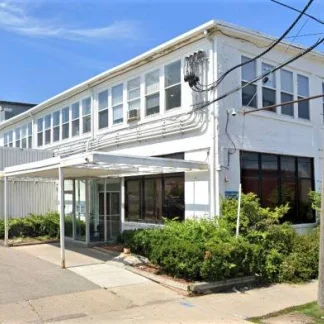American Indian Council on Alcoholism
American Indian Council on Alcoholism offers outpatient treatment for individual...
River Shore Comprehensive Treatment is a leading provider of medication assisted treatment, offers care for men and women (ages 18 and up) who are struggling with an opioid addiction. River Shore Comprehensive Treatment supplies an overall approach to treatment by incorporating safe medications and therapeutic interventions.
Contact us for more information: (414) 967-7006

Connect with River Shore Comprehensive Treatment by calling their admissions team directly.
(414) 967-7006 Website Get DirectionsThe Commission on Accreditation of Rehabilitation Facilities (CARF) is a non-profit organization that specifically accredits rehab organizations. Founded in 1966, CARF's, mission is to help service providers like rehab facilities maintain high standards of care.
CARF Accreditation: Yes
The experience of group therapy includes the participation of numerous patients. In most cases, group therapy sessions will be led by one counselor, however, in the event that there is a larger group of individuals participating, more counselors might be involved. Like individual therapy, group therapy works to help individuals acknowledge and process the behavioral and emotional effects that have added to their opioid addiction. It is highly uncommon for an addiction to develop for no reason, as issues like stress, societal pressure, history of trauma, mood disorders, low self-esteem, etc. often serve as underlying causes of addiction. Group therapy offers up an environment where individuals can feel comfortable discussing issues such as these, as well as other topics related to recovery. Group therapy is often effective because of the talent of the therapist, as well as the participation of the individuals.
Individual therapy is a method of care that includes working with a counselor in a one-on-one setting. This type of therapy helps patients begin recovering from an addiction to opioids like heroin, prescription pain pills, or morphine. Some of the benefits of individual therapy can include developing new perspectives regarding the potential underlying causes of addiction, addressing past issues (such as trauma) that have added to an opioid addiction and creating healthy coping skills, among others.
Individual therapy is a method of care that includes working with a counselor in a one-on-one setting. This type of therapy helps patients begin recovering from an addiction to opioids like heroin, prescription pain pills, or morphine. Some of the benefits of individual therapy can include developing new perspectives regarding the potential underlying causes of addiction, addressing past issues (such as trauma) that have added to an opioid addiction and creating healthy coping skills, among others.
American Indian Council on Alcoholism offers outpatient treatment for individual...
Omni Enrichment is a private rehab located in Milwaukee, Wisconsin. Omni Enrichm...
Clement J. Zablocki VA Medical Center provides Behavioral Health and Chemical De...
Crack Treatment Recovery First is a private rehab located in Milwaukee, Wisconsi...